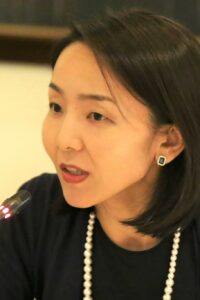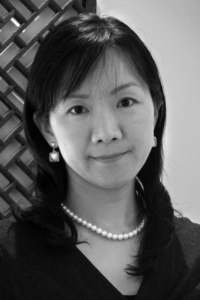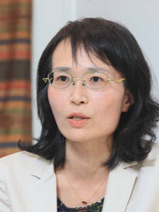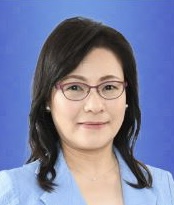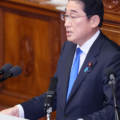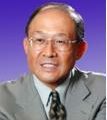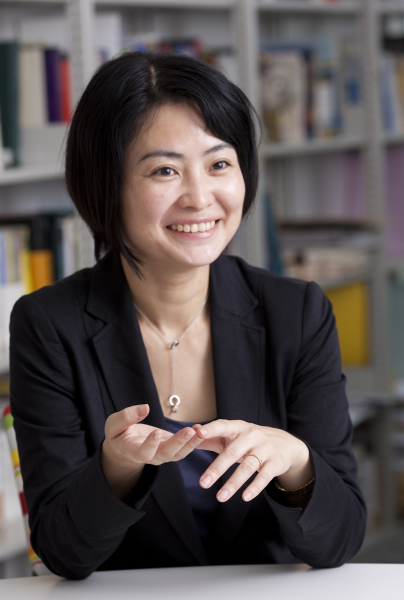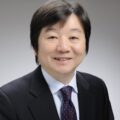Democracy Turning Its Back on the International Order: Can Pride and Strategy for Global Engagement Be Recovered?
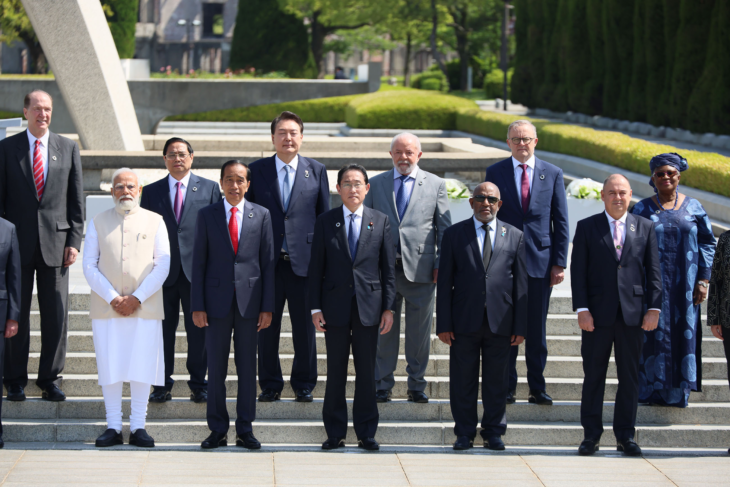
“The G7 and Western agendas are important, but Japan should have its own diplomatic agenda, and its target is Asia. […] authoritarian countries reinterpret human rights and democracy in their favor and ensure their legitimacy to overcome Western norms. That’s why I think we need to reaffirm the original meaning of democracy and human rights, especially liberal values, more than ever.”—Professor Ichihara Maiko,
Photo: Cabinet Public Affairs Office
Western countries, where politics of division and conflict are becoming the norm, are losing their ability to respond to long-term challenges. What direction ought we discern for continued support for Ukraine, information warfare in war, the challenges facing “democracy” spreading around the world, the confrontation with China, and other issues?
Ichihara Maiko (Professor at Hitotsubashi University), Kojima Kazuko (Professor at Keio University), Suzuki Sanae (Associate Professor at University of Tokyo), Higashino Atsuko (Professor at University of Tsukuba), Iizuka Keiko (Senior Political Writer at the Yomiuri Shimbun)
Iizuka Keiko: Starting with the presidential election in Taiwan, 2024 is seeing elections to choose the leaders of many major countries in the world, including Indonesia, Russia, India, and the United States. The one with the greatest global impact will likely be the US presidential election.
Former President Trump plays the main role in the election campaign, and his words and actions have already started to have a considerable impact on the international community, even before the presidential election in November. Trump and the other Republican candidates called for a reduction of support for Ukraine even before Super Tuesday in March. We cannot rule out the possibility that they will make a pledge such as “to stop support.” What do you think about this situation?
War to Defend Democracy?
Higashino Atsuko: I am concerned that Trump’s words and actions, as well as the divisions and confusion in American society in the background, will end up making support for Ukraine a variable in the party fighting. Currently, there is no one in a position of authority in the United States who is saying, “let’s completely stop support for Ukraine,” but we’re starting to hear people saying that support for Israel should come before support for Ukraine or that the priority should be border control. Such a move could actually reduce support for Ukraine, raising doubts in the international community about American willingness and ability to continue support for Ukraine, thus benefiting Russia. In fact, Russia is sending a message to the international community that the United States is no longer capable of supporting Ukraine. This is not limited to the United States. The G7 has repeatedly specified that it will be providing the necessary support for Ukraine for “as long as it takes,” but aside from financial support, promised military support tends to be delayed. The Western response is being questioned once more.
Iizuka: How does China view the current situation in Ukraine or the international situation?
Kojima Kazuko: The Biden administration put forward a framework contrasting humanely superior “democracy” with inhumane “despotism” in response to Russia’s invasion of Ukraine, aiming to gain the upper hand in the power struggle in the discursive space. In this dichotomous rhetoric, China was involuntarily lumped with Russia. However, since October 2023, with the intensification of the Gaza conflict, the United States has exposed itself as a state under the strong influence of Christian evangelicals, by using its veto against a United Nations Security Council resolution calling for an immediate ceasefire in Gaza for humanitarian purposes. This action has drawn criticism for its double standards. China views this current situation as a breakdown of the logic underpinning US diplomacy. Coupled with confusion and division within the US and the fraying of domestic and international unity over support for Ukraine, China perceives this as emblematic of the decline of US power.
Iizuka: What is the situation in Southeast Asia?
Suzuki Sanae: Sovereignty and non-interference in internal affairs are principles of international law that are particularly important for small and medium-sized states, but at the same time, Southeast Asian countries have diverse relationships with the United States, China, and Russia, and as a result, their responses are divided. After the invasion of Ukraine, the UN General Assembly resolution condemning Russia’s actions was supported by many countries, including Indonesia and Singapore, but some, like Vietnam that is thought to procure 80% of its weapons from Russia, and Laos abstained. Even Indonesia and Malaysia, who supported the resolution, may have hesitated to make any collective decision as ASEAN on this matter because their economic relations with Russia have been rapidly deepening in recent years. This is common among many developing and emerging countries in the so-called Global South.
Iizuka: Don’t ASEAN countries frown upon emphasizing and sometimes imposing “democracy” in diplomacy, as the Biden administration is doing?
Suzuki: ASEAN countries do not have such an impression of the Biden administration. Its policy toward Southeast Asia is basically a function of how to compete with China and there are barely any elements of democracy. It is reflected in the US involvement in Mekong development that started with the Trump administration and the Indo-Pacific Economic Framework (IPEF). Compared to the Clinton and Obama administrations, the Biden administration’s foreign policy places less emphasis on the importance of human rights and democracy.
Iizuka: In Washington, D.C., there is a recognition that suppressing China’s influence is a struggle to protect democracy in addition to its diplomatic and security significance, but Southeast Asia does not focus so much on the value aspect.
Ichihara Maiko: “Democracy versus authoritarianism” is a construct that Biden originally used in his election campaign, so it very much emerged from domestic political factors. Moreover, there was a lot of backlash from the international community, so he refrained from mentioning it starting in his second year. In the Ukrainian context, immediately after the Russian invasion, “democracy versus authoritarianism” was similarly brought to the forefront, but after that, it was toned down. However, the language itself has acquired a certain resilience and continues to bind people’s perceptions even today.
Iizuka: The problem of democracy also falls on Ukraine itself, which is a party to the war. As part of the process of joining the EU, the quality of the country’s democracy is being scrutinized.
Higashino: Once the Ukraine war is defined as a battle of “democracy versus authoritarianism”—and I have reservations about this view—it is inevitable that Ukraine will get various “orders.” It is true that Ukraine has problems with governance and democracy, including corruption. Ironically, however, Ukraine has actually sped up various reforms due to the invasion. To prove itself as a country worthy of support. Moreover, Ukraine’s EU accession process is in full swing, forcing the country to engage in semi-compulsory political and economic reforms. It is engaging in large-scale domestic reforms during the war and aims to join the EU. This is an unprecedented challenge for both the EU and Ukraine.
Support for Ukraine Faces Challenges in Its Third Year
Iizuka: What is your outlook for the future situation in Ukraine?
Higashino: In addition to the failure of the reversal offensive in 2023 to achieve the desired results, amid various reports of “support fatigue,” I hear more and more about an early ceasefire in the form of fixing Russia’s territorial gains. However, as I have been saying since the beginning of the invasion, it is the Ukrainian people who will decide the future of Ukraine. It is highly doubtful that the idea of making permanent a state of 20% occupied by Russia will be accepted in Ukraine today. There is no effective solution to prevent another Russian invasion either.
Iizuka: But it is the United States that actually holds the power of life or death over Ukraine, including things like weapons support. And at the center of US politics is Trump, with many of his supporters reluctant to support Ukraine. Ukraine cannot continue the war without the support of the United States. If so, Europe will have to make a tough choice.
Higashino: If Ukraine were to be defeated and Russia were to occupy a large part of its vast territory, the severity of the consequences would be very different between the United States and Europe. The United States will lose credibility in the eyes of its allies and the international community, but its own territory will not be threatened. However, in Europe, the Russian threat is just around the corner. For Europe, support for Ukraine is not only a battle for the principles of the international order, but also a direct security issue. Europe cannot take the place of the United States, but stopping the support is not an option.
At the same time, it is likewise true that the current support is extremely inadequate for Ukraine. In March 2023, the EU pledged to provide 1 million rounds of ammunition in one year, but actual fulfillment hasn’t reached even a third of that. If Ukraine is forced to enter into an early ceasefire agreement amid the gap between Europe’s intentions and capabilities, inevitably it would mean that Ukraine had given up its territorial defense partly because of an empty promise by Europe.
Ichihara: From a long-term perspective, the reason we pay attention to developments in the US in times of emergency is that we have expectations on the US as a “hegemonic power.” Unfortunately, the US today is not able to maintain any of the hegemonic power requirements—overwhelming power to stabilize the international order and moral leadership that offers international public goods. In terms of power, it was relativized by the rise of China. From a moral point of view, the populist forces represented by the Freedom Caucus are reluctant to support Ukraine, and an attitude of consideration for Israel in the Gaza conflict is growing in the United States, especially among the younger generation. In conjunction with the prospects for the situation in Ukraine, we need to rethink the existence of the United States and restructure our foreign and security policies accordingly.
Information, Diplomacy, and Elections
Iizuka: In Ukraine and Gaza, there is intense information warfare unfolding alongside the actual battles.
Ichihara: There are more and more narratives which use conflict to justify their position. One of the features of this is simplification. For example, the Chinese People’s Daily talks about the Gaza conflict with only two actors, Israel and Palestine, and even the words Hamas and Gaza rarely appear. It creates narratives that China supports a two-state solution and values relations with both sides from a neutral standpoint, while the United States supports Israel and obstructs the two-state solution. Adding photos and videos of killed children make it even more impactful. On the other hand, the US government has expressed the view that “Israel has the right to rescue its hostages” but “must not allow any expansion of the humanitarian damage in Gaza,” taking into account justice for Israel and Hamas alike. However, such a complex message is difficult to spread on social media. And of course, Israel and Hamas engage in this kind of information warfare as well.
Higashino: The complexity of the debate and the critical discourse against power used to be an indication of the strength and superiority of Western society, but in the social media-centric discourse space, these are rather the elements that bind the hands and feet of the communicator. There are many valid criticisms of the United States and Europe, such as “Israel bias” and “double standards.” It is also true that “there is corruption in Ukraine.” However, when simplistic arguments criticize the contradictions and failures of the United States and Europe and there are too many voices rejecting all policy based on one or two elements, even fundamental facts like “Russia the invader” and “Ukraine being invaded” can easily be relativized and denied. I think we should be more cautious about the political implications of the diminishing role of US and European leadership in the support for Ukraine.
Iizuka: How is China trying to counter Western values, democracy, and the liberal international order?
Kojima: We are exposed to disinformation from China, Russia, and other sources. Conversely, the leaders of the Chinese Communist Party (CCP) assert that China is increasingly threatened by information warfare from the United States. The United States, as a hegemonic power, is believed to use the National Endowment for Democracy, along with other NGOs, foundations, Christian churches, networks of intellectuals, and internet media, to foster American “agents” within China with the aim of overthrowing the one-party system. It is claimed that the United States, which has been accused of inciting color revolutions in the former Soviet Union, the Arab Spring, and the anti-government protests in Hong Kong, has now set its sights on mainland China. This heightened sense of crisis has created a vicious cycle that further entrenches China’s authoritarian governance.
Moreover, although this is not often discussed in Japan, China is seizing the opportunity to promote its values globally. In December 2021, when the Biden administration held the first “Summit for Democracy,” China also convened its International Forum on “Democracy: The Shared Human Values,” inviting experts from about 120 countries and regions. During this event, China published two reports, “The State of Democracy in the United States” and “China: Democracy That Works.” The consistent arguments presented were, firstly, that countries should respect each other, learn from one another, and stand in solidarity in governance based on their own histories, rather than adhering to a fixed model of “democracy.” Secondly, it emphasized prioritizing economic development and the welfare of the people over an obsession with democracy that could lead to disorder. These values are widely shared, particularly in the so-called Global South. China, which claims to be the leader of the Global South, is employing a dual strategy of defense and expansion, just as advocated in (Sun Tzu’s) The Art of War, in this discursive battlefield over democracy.
Iizuka: Is China trying to spread its governance model to the world?
Kojima: Today, China continues to uphold the “Five Principles of Peaceful Coexistence,” which emphasize non-interference in internal affairs, as the cornerstone of its diplomatic policy. Additionally, it praises “diverse forms of diplomacy.” Therefore, I do not think China intends to impose its governance model on other countries.
Higashino: The discourse that points out the presence of the United States in the shadow of various revolutions in the former Soviet Union has been popularized by Russia for a long time, but it is also shared by China. The two countries are not sending separate messages but are rather attempting to expand their scope of influence by unifying specific messages.
Ichinara: We are already seeing strategic alignment. In July 2021, China and Russia signed a cooperation agreement on mass media. The point is that the agreement is signed not only by the governments of the two countries but also by the government media and private media.
China and Russia actually find an alternative to Western values in liberal values. Elements such as democracy, human rights, and elections enjoy unwavering international legitimacy and cannot be overturned. As such, China and Russia are trying to maintain international legitimacy by reinterpreting them in accordance with their own interests and giving them new definitions. That’s why China discusses democracy, and Russia holds elections even if they are rigged. With regard to human rights, China has framed its claims as universal by reinterpreting them as social rights rather than liberal rights, promoting them through the media.
Iizuka: There will be a presidential election in Indonesia soon.
Suzuki: In election campaigns, a large amount of distorted and manipulated information is circulated through social media, which seems prone to create populism. In Southeast Asia, there is a deep-rooted desire for a populist leader and social media is accelerating this in some ways.
Iizuka: What can be done about the spread of disinformation?
Higashino: Under the banner of “EU vs. disinformation,” the EU has started an initiative to thoroughly correct various forms of disinformation on Twitter/X. It’s a welcome initiative for professionals, but it’s questionable to what extent it will appeal to the general public. Moreover, no matter how much we modify it, we have not been able to keep up with the current situation where the same disinformation repeatedly appears on different sites.
Ichihara: When the government embarks on anti-disinformation measures and starts fact-checking, it might be seen as another actor in the propaganda war. It is important to establish institutions such as counter-disinformation centers, but they should be handled by non-governmental organizations. At the same time, it is necessary for such non-governmental organizations not to operate alone, but to build organizations and networks with similar functions domestically and internationally. For example, China saw the release of ALPS treated water in Fukushima as an opportunity to divide Japan and neighboring countries, developing information warfare in South Korea, Taiwan, Australia, and other countries. International networks are indispensable for responding to such movements.
Social Rifts: Interest Adjustment Is a Global Issue
Ichihara: The narratives that China and Russia communicate are only meaningful if there is a layer that resonates with them. As such, what is being questioned is also the health of our society. We must overcome economic and social disparities and the polarization of values. It is important to note that the disparities here are not to be understood economically or statistically but come from highly subjective perception. Based on this subjective perception, it is easy to create a friend-enemy relationship between we as the majority and the minorities and foreign forces that strike at us through comparisons of self and other, which has become easier with the spread of social media. And it becomes a spiral of waiting for a strong leader who can change the status quo.
Iizuka: So the question raised is what kind of Western society we want. In Europe, the influence of populist parties is growing against a backdrop of immigration and disparity issues. In November 2023, the “far-right” Freedom Party became the leading party in the Dutch general election.
Higashino: Over the past two decades or so, there has always been a rise in populist parties somewhere in Europe. Populism has become the new normal in European politics, and the current challenge is how to coexist with it—how to maintain social unity without excessively letting out claims of discrimination and exclusion against certain groups. In EU countries, the Orbán government in Hungary, Poland’s Law and Justice (PiS), which resigned at the end of 2023 after a change of government for the first time in eight years, and others are problematic administrations that have suppressed sexual minorities, restricted freedom of the press, and so forth. It is necessary to face up to the fact that the very essence of European democracy is beginning to crumble, both at the level of national politics and at the EU level.
Suzuki: Today, social cleavage is a universal phenomenon. In the past, Western countries used democratic institutions to overcome social cleavage, but as symbolized by the spread of populism, the ability to fix it seems to be declining. In both developed and developing countries, we often see people who want to become political leaders to inflame social conflicts for personal gain and use them to seize power. Strengthening the mechanisms for reconciling social conflicting interests has become a common challenge in the international community.
Iizuka: Elections are one of the fundamental elements of democracy, and in recent years, as the term “electoral dictatorship” suggests, there has been an increase in the number of authoritarian regimes created through formal elections, such as in Russia. How about Southeast Asia?
Suzuki: Southeast Asia is divided. In many of ASEAN’s original member states, democratic values are ingrained among the population, leading to movements for political freedom and regime change. On the other hand, in countries that joined in the 1990s, even the legitimacy of elections is not guaranteed. How to deal with situations like what happened in Myanmar, such as ignoring election results, will be an indicator of the penetration of democratic values in the region.
Reaffirming Liberal Values
Iizuka: As the war in Ukraine drags on, questions are being raised about what kind of Western society we want.
Higashino: Until now, Europe emphasized idealistic aspects, such as stable democracy, the progress of [European] integration, and the creation of liberal norms in the economy and society, while also possessing a pragmatism that turned these ideals into actual institutions and realities. European integration itself was also an overwhelmingly elite-driven project. However, they have been greatly shaken. Europe was not able to stop the war from starting in Ukraine, nor has it been able to provide a third of the ammunition it promised. In 2023, I wrote an article titled “‘Downfall’ of Europe as a result of the war in Ukraine” in this magazine [Gaiko]. It is time for Europe to reconsider what it can do in accordance with reality.
If I were to give three points, the first is support for Ukraine, the second is de-Russification with a focus on energy, and the third is competition and coexistence with China as a systemic rival. The EU as a whole has set a direction for de-Russification of energy, but the reality is that some countries, such as Hungary and Slovakia, cannot keep up. They are still trying to find a line that will bring the whole of Europe together without anyone missing out. Relations with China are also a difficult task. For example, when it comes to large-scale infrastructure support, developing countries and emerging countries prefer the Chinese style, which does not impose governance. Moreover, in order to put pressure on Russia for a ceasefire, Europe has no choice but to rely on China’s help with the climate change issue. Based on the current situation, we must set new goals.
Iizuka: China’s influence extends beyond ASEAN to Africa and Central and South America. In addition to the economy, Chinese elements are also expanding in terms of governance and governing systems.
Kojima: Certainly, the “One Belt, One Road” initiative (BRI) launched by the Xi Jinping administration is expanding its scope. However, the BRI focuses on building transportation infrastructure and creating a vast economic zone, without imposing changes on the governance of the countries along its routes. As I mentioned before, non-interference is a fundamental principle of China’s foreign policy. Furthermore, the BRI comprises a variety of projects undertaken by diverse actors who sought to benefit from General Secretary Xi Jinping’s call, so state control does not necessarily extend to every detail. Currently, many projects face challenges in terms of profitability and sustainability.
Meanwhile, we must pay attention to the various incidental effects that China’s provision of information and communication infrastructure may have on local governance. The question is whether we can provide more attractive alternatives in a timely manner.
Ichihara: Western countries have placed great emphasis on collaboration with the Global South and have shifted their foreign policies accordingly. In the G7, the term “rule of law” is used more than “freedom” or “democracy.” In 2006, Japan announced the “Arc of Freedom and Prosperity,” a diplomatic vision that promotes the principles of freedom, democracy, and the market economy, so the “Free and Open Indo-Pacific” (FOIP) a decade onward primarily advertises the concepts of rule of law and good governance, including fiscal soundness, accountability, and transparency. In other words, we have shrunk the element of “value.” This pragmatic response was successful, and FOIP is also shared with ASEAN and other countries.
But in a situation where the war in Ukraine could escalate to Russia’s advantage, is it okay to focus on pragmatic responses? As I mentioned earlier, authoritarian countries reinterpret human rights and democracy in their favor and ensure their legitimacy to overcome Western norms. That’s why I think we need to reaffirm the original meaning of democracy and human rights, especially liberal values, more than ever. Furthermore, when talking about human rights and democracy, it is important to exclude the element of geopolitical conflict. For example, the Myanmar issue should be discussed not from the perspective of how to eliminate China’s influence, but from the perspective of how to deal with people oppressed by the government in search of freedom.
Pursue a Diplomatic Agenda Unique to Japan!
Iizuka: In the past, Japan supported the development of ASEAN countries as a leader in Asia, but recently it has been pushed aside by China in terms of economic power, so I feel that it is shifting to institution building and capacity building support as a practice of “rule of law” rather than infrastructure development. What do you think is the role of Japan?
Suzuki: As emphasized at the Commemorative Summit for the 50th Year of ASEAN-Japan Friendship and Cooperation in December 2023, Japan and ASEAN established the comprehensive strategic partnership. Now ASEAN has not only Japan but also other partners who support infrastructure development and capacity building. Japan must change its mindset as a donor country. While it can continue to respond to high expectations in functional cooperation such as disaster management, in political and security cooperation, Japan can learn the diplomatic wisdom and techniques accumulated in ASEAN, such as the ways to reconcile competing interests and manage relations with China. Recognizing that there are many aspects in which ASEAN sometimes acts as a teacher for Japan must increase Japan’s value in ASEAN.
Kojima: Whether or not Japan can achieve a peaceful international environment and enhance its diplomatic presence in the world depends on its capacity to build stable relationships with China and other countries that do not necessarily share its values. In this context, the reaffirmation of a “Mutually Beneficial Relationship Based on Common Strategic Interests” at the Japan-China Summit Meeting in San Francisco in November 2023 should be regarded as a minor diplomatic achievement. In the future, it is expected that this framework will be materialized through concrete initiatives such as third country market cooperation. Notably, Japan and China’s foreign aid, often characterized as “Asian-style aid,” share common principles of non-interference in internal affairs and an emphasis on market-based approaches. Japan must respect diverse cultures and values while deepening cooperation with China in supporting autonomous activities for development. This approach will contribute to the stabilization of Japan-China relations, as well as stability in Asia, and the world.
Suzuki: The shift in the focus of Japan’s diplomacy from value to good governance was not only due to cooperation with the Global South, but also to cooperation with China. Southeast Asia does not want US-China relations to deteriorate too much. In this regard, if Japan can have a constructive relationship with China, ASEAN will be happy. In this case, the problem of value cannot be avoided. Based on concerns for “reinterpretation” as pointed out by Prof. Ichihara, there should be areas where cooperation is possible using China’s interpretations from time to time. If we can share various “playgrounds” with China, that will be a great diplomatic asset for Japan.
Ichihara: As an expectation for Japan’s diplomacy, I would like to see Japan take the initiative as a force that maintains order in Asia. The Japanese government, in cooperation with the G7, is actively involved in the issues of Ukraine and Gaza. Moreover, there is considerable media coverage and a high level of public interest. On the other hand, with regard to the current situation in Myanmar in Asia, for example, the interest of the international community, including Japan, is surprisingly low, despite the fact that the ethnic minority stepped up their military offensive in October 2023, placing the country at a major crossroads. The G7 and Western agendas are important, but Japan should have its own diplomatic agenda, and its target is Asia. Apart from Myanmar, the Philippines and Indonesia have restricted the free press, and India has been spreading Hindu supremacy, so the space for civil society is shrinking rapidly. In response to this, focusing only on government discourse can lead to misunderstandings of what people really want. It is important to strengthen relationships with non-governmental actors and to develop regional networks. By doing so, we can speak out on behalf of those who cannot speak up at home. I hope that Japan will actively work to maintain and establish freedom in Asia.
Suzuki: The situation in Myanmar is serious, and ASEAN countries have been working to solve it, but it has not yet been possible to change the military regime’s attitude. Southeast Asian countries have a strong sense that “Southeast Asia’s problems should be solved in Southeast Asia,” so it is important for Japan to respect their ownership and provide political support so that ASEAN can manage the crisis smoothly. For Southeast Asian countries, democracy and political freedom are universal values that should be emphasized, however simply blaming the military regime will not improve the situation. Politics is a question of how to share or divide interests. In this sense, they are aware that they need to work out the cessation of violence and realize dialogue between the parties concerned, including the military regime. It all comes down to how much Japan can understand and share this aspect.
Translated from Kokusai Chitsujo ni Se wo muketa Minshushugi: Sekai kanyo heno kyoji to senryaku wo torimodoseruka (Democracy Turning Its Back on the International Order: Can Pride and Strategy for Global Engagement Be Recovered?), Vol. 83 Jan./Feb. 2024, pp. 24–35. (Courtesy of Toshi Shuppan) [June 2024]
Keywords
- Iizuka Keiko
- Yomiuri Shimbun
- Gaiko
- Higashino Atsuko
- University of Tsukuba
- Kojima Kazuko
- Keio University
- Suzuki Sanae
- University of Tokyo
- Ichihara Maiko
- Hitotsubashi University
- democracy
- authoritarianism
- populism
- Western values
- liberal values
- diplomacy
- Ukraine
- information warfare
- disinformation
- elections
- China confrontation
- One Belt, One Road
- Global South
- ASEAN
- Southeast Asia
- Myanmar
- Indonesia
- United States
- mass media
- free press
